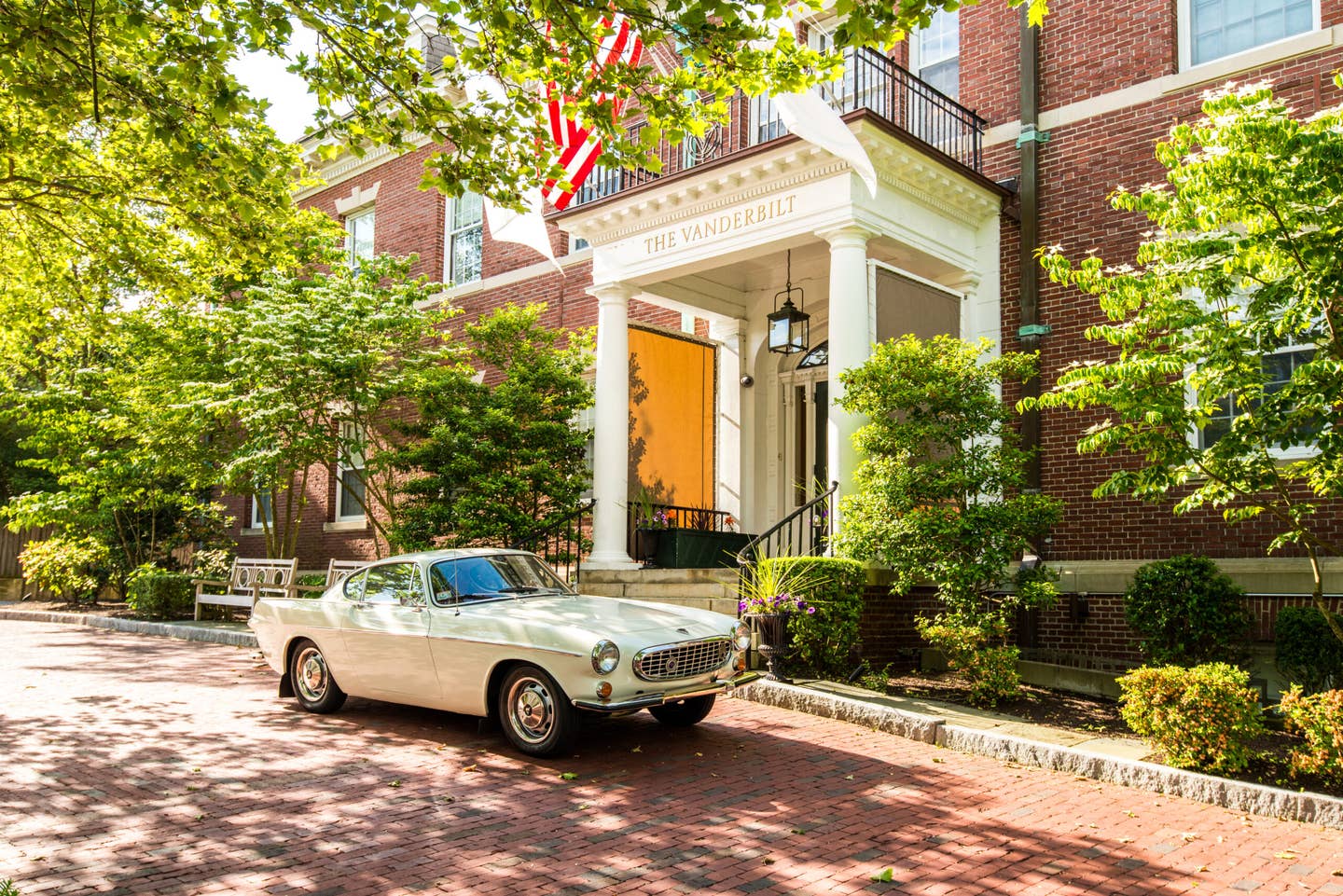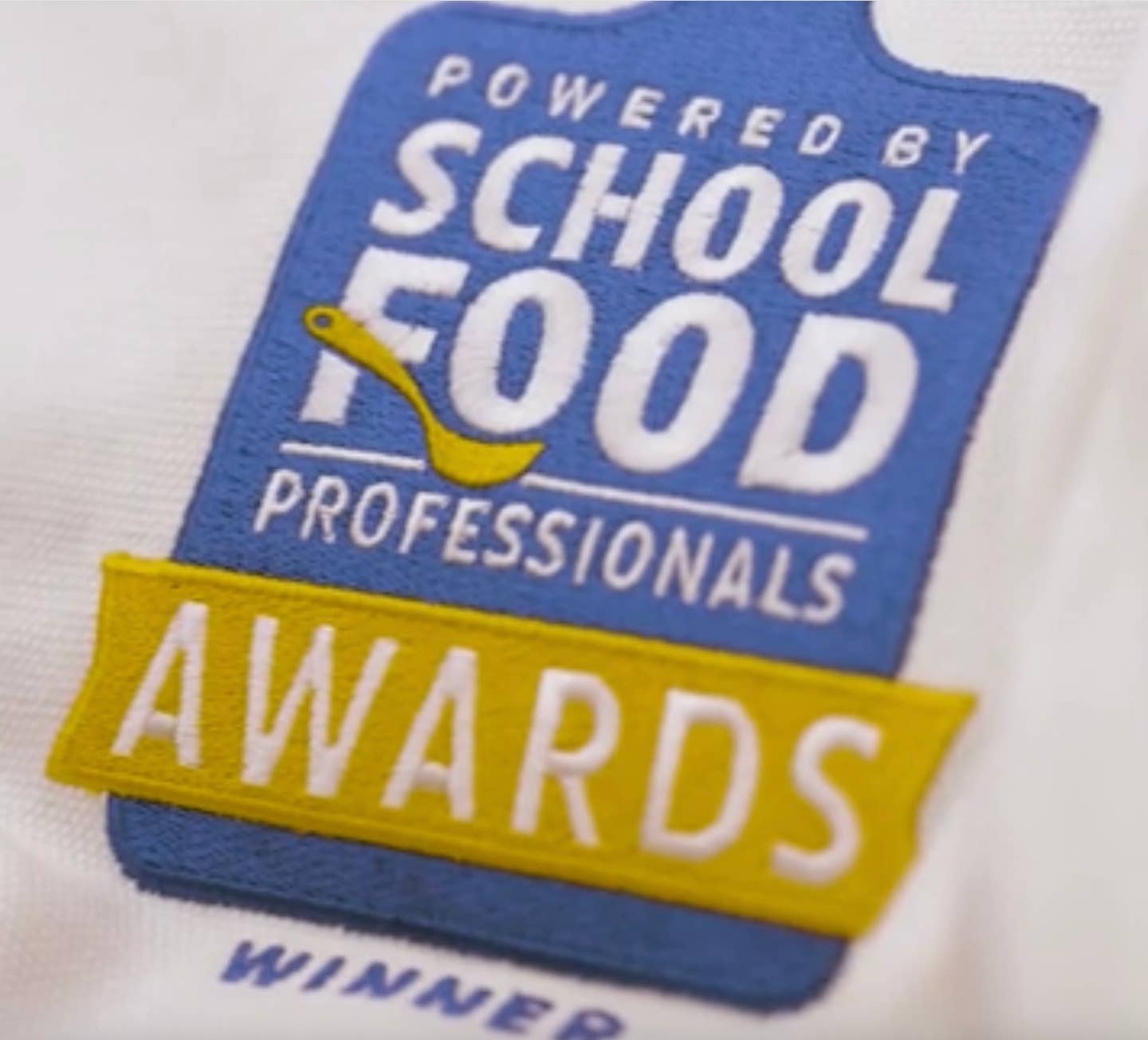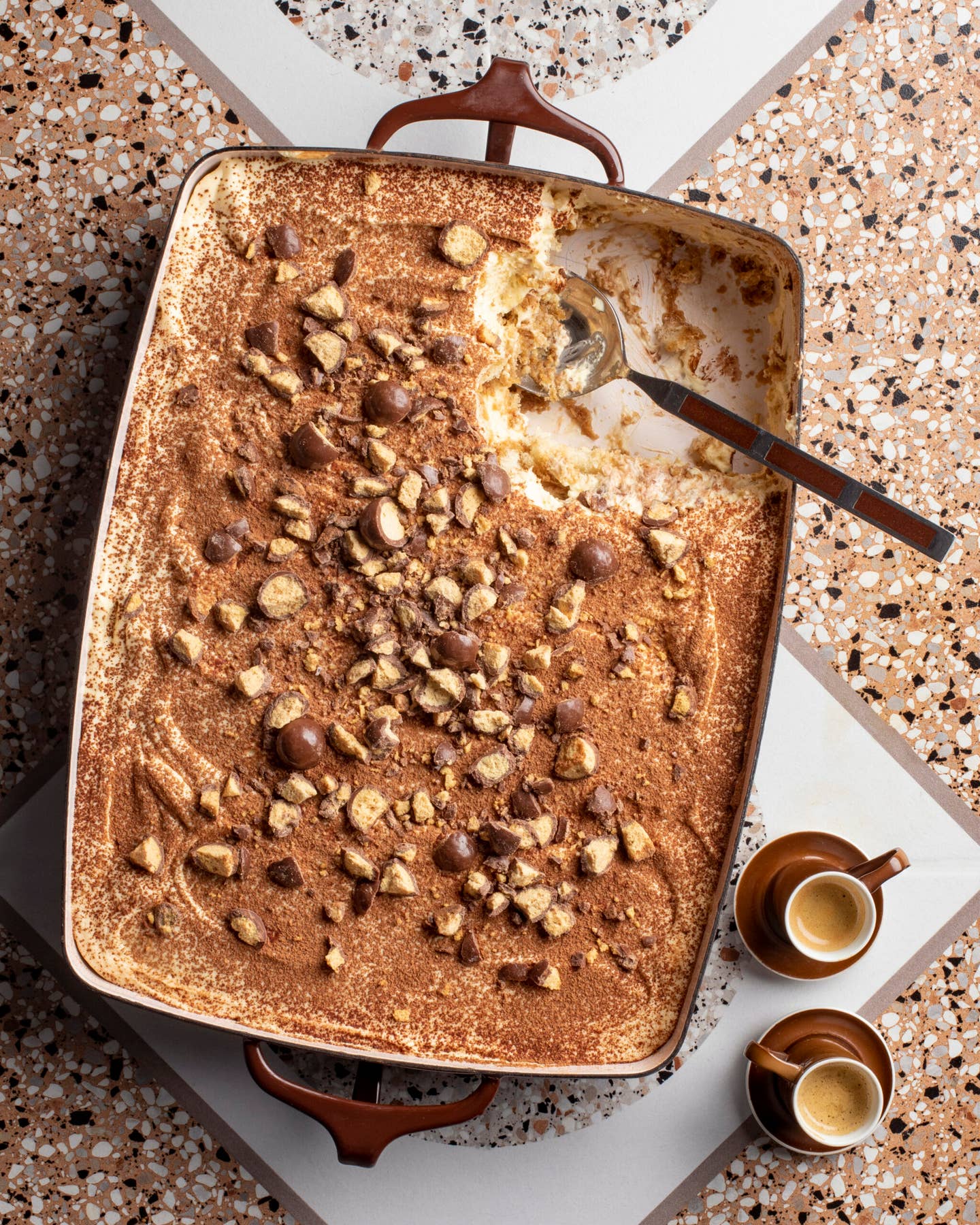baroo 2.0
When baroo opened in 2015, word spread among foodies and those of us working in kitchens: You had to get to baroo. Many Los Angeles restaurants can be heavy on “atmosphere” for the dining area, pouring money into sconces and other trimmings; instead, here was fluorescent lighting, blank walls, and functional dining sets in a Hollywood strip mall.
As its only real flair, the kitchen overflowed with ferments on display, along with a massive collection of cookbooks behind a small counter at the end of which was a micro kitchen. Inside you’d see two cooks—Kwang Uh was one of them—busy pulling off a miraculous menu that Jonathan Gold, the Patron Saint of Los Angeles Culinary Arts, once called “a taste of the future.”
To say I haunted this restaurant is an understatement. I can still close my eyes and recall each bite of celeriac pasta with sunchoke chips, crispy spoonfuls of kimchi fried rice with an egg set like custard, a delicate plate of red onions pickled with rose petals, and oat chocolate pearl cookies that melted and popped in your mouth. Over the next couple years, a James Beard Award nomination and a Best New Restaurant nod from Bon Appétit magazine brought baroo into the national consciousness. Not long after, the restaurant would close to an outpouring of love and mourning from regulars throughout the city. It had been a passionate, undeniably brilliant, and unsustainable dream in the wake of such recognition.
In 2017, Kwang Uh, who had also considered becoming a monk, went to South Korea to spend time at Baekyangsa Temple about 200 miles south of Seoul. The temple is known for its verdant gardens and lush vegan food cooked by the charismatic nun Jeong Kwan. Kwan had already become an unintentional international star after her turn in Netflix “Chef’s Table.” Uh would ultimately spend many months at the temple assisting Kwan with her ferments, cooking, and tending to the temple’s needs.
“I learned to open my heart more to cooking different ways,” says Uh, “and to learn more from others.”
He was so immersed that when another pilgrim, Mina Park, visited the temple to cook with Kwan, she mistook him for a monk. Park had recently left her job as a lawyer, and was running a successful Korean food pop-up in Hong Kong, when she arrived at the temple. But it was not until Kwan pointed out that both Park and Uh had spent time in the United States that Park realized she had eaten at baroo shortly before coming to Korea and was now talking to one of its celebrated cooks. She gushed about how much she’d loved it, showing photos of the food she ate to everyone at the table.
“This is still the best way to embarrass him [Uh],” Park says with a smile.
This was their meet cute, though it would be multiple events at the temple in Korea—and countless late nights in the final days of old baroo’s kitchen in Los Angeles—before they became what they are today: running the new baroo as a family of three. baroo 2.0 opened in September, 2023.
It had just been named the Los Angeles Times 2024 Restaurant of the Year when I arrive to chat with Kwang Uh and Mina Park in October. Walking into the new baroo’s larger and softer space, it can be hard to remember the old beloved but stark restaurant. The new space is more open and relaxed, filled with wooden tables bathed in a mix of natural and warm light that shows off the muted neutral tones of the room. The faint smell of salt in the air is from lamps made of seaweed hanging above. Intended to be cozy, the new space is inspired by hanoaks, or traditional Korean homes with contrasting dark wood and light-colored interiors and is filled with vintage Korean pieces curated by Park. When I spy the three massive earthenware pots gathering heat in the afternoon sunlight, I know I am in the same place I have always loved.
Uh, dressed all in denim, is soft spoken and selective with his words. Mina is fast with a laugh and easy with a smile. They speak about their intentions and dreams for the future after this fresh accolade.
“I want to be worthy of this award,” Uh says. “I hope that next year will be our best year, and the same for the next. Every year, our best year. I want to be creative, but I also want to be financially sustainable.”
“We are looking towards a Michelin Star,” adds Park, “and all the standards of ethics, food, and service that means. I really believe in what we are doing and in Kwang’s food, and we want to use this platform to be beneficial to the world. We are also focused on connectedness and sustainability - we’re one of only two restaurants in Los Angeles to be a member of Zero Foodprint, committing 1% of our revenue to regenerative farming efforts.”
The new baroo offers a tasting menu with seven courses and drink pairings that change with the seasons. Though the food is different, it retains the same signature playfulness, depth, and boldness of flavors found on the first baroo’s a la carte menu. Among many standout dishes, the soy-braised wild black cod with dongchimi, lemongrass, buttermilk, and papaya will live rent-free in your mind after one unctuous bite. There is also a short rib in burdock jus with the texture of velvet nestled with baek kimchi and ssam.
“A tasting menu was a natural choice,” says Uh, who previously worked in many lauded kitchens. “My background is in fine dining, so this was always my dream. I want to slowly add elements of the old baroo into the menu over time.”
Uh and the team also give you many good reasons to skip protein for the evening. With advance notice they will make you a vegetarian or vegan option, featuring Korean bansang, a carefully curated selection of banchan pickles, seasoned rice, soup, and radishes, swimming like koi fish in a delicate liquid. Both agree that, more than anything, they want to show that Korean food is more than just the BBQ joints of Koreatown or stricter temple food that forgoes things like alliums.
“After its fermentations, Korean food is most celebrated for its vegetables and greens,” Park says. “It’s time for people to know more about Korean food.”
Inside the vats is gochujang, a signature Korean chili paste, fermenting since the couple hosted Jeong Kwan, their mentor and unintentional matchmaker. The class and dinner series at the restaurant in August sold out on Resy in less than 15 minutes. Kwan and her monks took over baroo for a series of events that deeply involved the restaurant’s staff despite a language barrier.
“I know it was significant [for them],” Park says. “I can see the cooks still working with her knowledge today. We hope to make it a yearly event; the class especially was successful when people could really spend time with her; she’s very charismatic. Kwan has always been a huge supporter of ours—my son calls her ‘grandmother’! It was very meaningful for us to have her here. The best reason to have a restaurant is to be able to host people and share that experience.”
At baroo 2.0, family is at the heart of everything. Not many fine-dining establishments have a 5-year-old peeking out from the kitchen, where he keeps a small desk and often helps with picking herbs or leading the pre-shift meeting before service. Teahoon, or Tae Tae, once even showed off his citrus-filled Cambro art to a few lucky diners. If you come early, you may also catch him before he clocks out for the dinner shift, a charming reminder of the very real people at the heart of this fabled kitchen. Still, Park and Uh are careful not to fall into the trope of many restaurants, where addressing the staff as “family” can sometimes feel insincere and is often used to cover abuses. Instead, they focus on the health of their “organis’ “and put into action practices that support and empower their staff.
“It can be fake to just say family,” Park says. “You must take care of people, being mindful and respectful that they have their own lives and families. When we opened, we didn’t know many of the people working for us, but now we do. We give our team breaks before our busy seasons where everyone is off at the same time. Joint paid time off allows them to relax, learn, or travel together if they want, and they do. Recently one of our cooks had a pop-up; Kwang and I went to support and almost everyone from our team was there!”
Uh and Park also run Shiku in Grand Central Market, a self-described mom-and-pop serving homestyle Korean Food. The name means “the people you share food with” or “your family by blood and beyond.” Park opens their lives up even further with Sook, a Substack where she shares stories of the reopening of baroo, tales of its guests, the capers of their “Restaurant Kid,” and travel. On Sundays, Park focuses her thoughts on what hospitality means to her and how it plays out in their two restaurants.
“I am stunned by how many people come to baroo to celebrate,” Park writes on her Substack. “One night we had 14 tables celebrating birthdays and two anniversaries!”
baroo only has 38 tables, so this is remarkable. Come on your anniversary to have Park pour you a glass of bubbly champagne or deliciously effervescent makgeolli with her warm smile. Visit baroo on your birthday, as I did this year, and your dessert will sport a golden candle. Anniversaries, birthdays, or graduations all end with a printed paper Saju Palja, or ancient Korean fortune based on Yin\Yang, the five elements, and the I-Ching, as well as a handwritten note from Park and Uh. Saju Palja is a pandemic passion of Uh, and Park muses that, perhaps when Uh is finished making food, he’ll retire to become an old fortune teller in South Korea. They worked with a Korean artist to design these cards and translate them into English to share with guests. Each is unique and beautiful. I framed mine.





